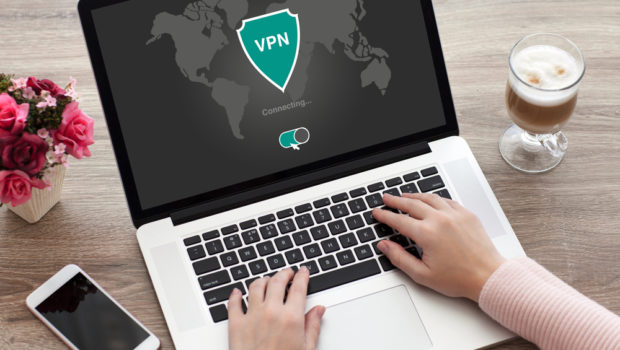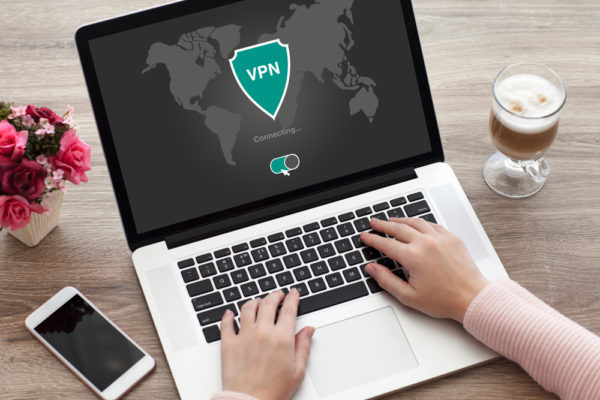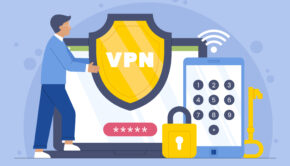Quickest VPN Providers and How They Can Benefit You
As much as you might initially believe that you can do anything with the Internet these days, certain issues have riddled its very existence. From government-sanctioned censorship to streaming videos unavailable in some countries, the Internet isn’t as free for all as you thought it was. But with VPN – or virtual private networking, you can bypass almost every restriction surrounding the Internet. However, using a VPN can make your Internet connection slower than it may already be while you’re waiting for the rest of this to load. Good thing then that some VPN providers don’t have any significant impact on your Internet connection speed at all, and those quickest ones are featured below along with how they can benefit you.
1. ExpressVPN
More and more Internet users have turned to streaming videos online. After all, why even bother collecting dozens of DVDs of your favorite movies and waste too much space inside your house if you can stream them on Netflix instead?
Unfortunately, a movie that may be available on Netflix in a certain country isn’t available in another. If you belong to the latter, that might throw you off, especially if the movie in question happens to be a favorite which is why some Internet users had attempted to bypass Netflix’s geographic restrictions using VPNs.
All seemed well at first, but then Netflix had to ban VPNs in 2016 that caused some of the said streaming platform’s subscribers to either cancel their subscriptions or consider using other VPNs that can bypass the ban. VPN provider ExpressVPN has become successful thus far in going against Netflix’s 2016 ban on VPNs.
You’ll have to shell out $12.95 per month to use ExpressVPN which you can pay using your credit card, Paypal, or Bitcoin. ExpressVPN also lets you connect up to three devices.
2. IPVanish
Another VPN provider that doesn’t slow down your Internet connection speed as much is IPVanish.
Compared to ExpressVPN, you’ll only have to pay a flat $10 per month to use IPVanish. However, if you only have Bitcoin with you, you might want to consider another VPN provider instead as IPVanish doesn’t accept the said cryptocurrency at the moment. The silver lining though is that IPVanish lets you connect up to five devices.
IPVanish is also available for both Android and iOS operating systems as a mobile app.
3. Buffered
Another VPN provider that you might want to consider using is Buffered. Don’t let the name fool you as Buffered is anything but slow. With servers in more than 30 countries, Buffered has no reason at all not to provide fast VPN service to its customers.
Compared to the two previously mentioned VPN providers, you can pay for Buffered for as low as $8.25 every month. However, cheap doesn’t always mean good. Buffered doesn’t have a mobile app at all, so if you want to use the said VPN provider, you’ll have to use it on your desktop or laptop instead.
4. PureVPN
One of the oldest VPN providers around, PureVPN has made sure that they’re on top of the game despite strong competition from other VPN providers offering the same services like theirs.
PureVPN has more than 750 servers in 141 countries which makes bypassing Internet restrictions so much easier. On top of that, PureVPN also lets you connect up to five devices. PureVPN accepts more than 50 payment methods as well, so there shouldn’t be any excuse for you to pay $11 per month to use their service.
5. NordVPN
Not one to get left behind, VPN provider NordVPN offers ease of use to anyone who wants to try their service. For starters, you’ll be greeted by NordVPN with a world map and markers for each of the 59 countries where it has servers. The world map is also magnified by default to make choosing your desired country whose server you want to connect to easier for you. But if a world map isn’t your thing, you can turn it into a list where the same 59 countries are displayed alphabetically.
You may have already noticed it too, but 59 countries are way less than those under PureVPN. However, what NordVPN lacks in the number of countries, it more than makes up for with having around 2,800 servers worldwide.
Unlike most of the VPN providers listed above, NordVPN lets you connect up to six devices at a time. You’ll have to pay $11.25 per month though, but with so many devices that you can connect with NordVPN, the price is worth it.
6. VyprVPN
Not a lot of VPN providers offer free trials of their services. VyprVPN, on the other hand, lets you try their service for as long as three days before deciding if you should pay $5 every month for it. If you’ve made it this far, you’ll notice that VyprVPN’s monthly plan is way cheaper than that of Buffered which is already one of the more affordable fastest VPN providers around.
If VyprVPN’s combination of three-day free trial and a measly $5 per month afterward isn’t enough to convince you to try it, then we don’t know what will.
But again, cheap doesn’t necessarily mean good. There’s no guarantee that VyprVPN would be consistently fast as the said VPN provider currently has only more than 700 servers in 64 countries, a bit less than that of competitor PureVPN.
Conclusion
The market for VPN worldwide has already reached 18 billion U.S. dollars as of 2017 and is expected to go higher as more people are learning about the said technology and how it can give them more freedom to use the Internet than what their service providers are giving them. But as some VPNs can take a considerable toll on your Internet speed, you may have quit using them. You may have simply accepted your fate that you won’t be able to post anything online without getting censored by your government or visit a website that your country had blocked. The above-listed quickest VPN providers and how they can benefit you should convince you to give them a try.
About the author:

Tim Tremblay created and runs Fastest VPN Guide, a website which offers accessible and unbiased information on all things VPN, online privacy, and online security related. Tim is a self-proclaimed geek at heart and comes from a world of computer networking and IT security. Over the years, he has gained extensive experience managing corporate VPNs. He also spends a significant time evaluating consumer VPN providers, both from a technical and a usability point of view. When it comes down to it, Tim knows a thing or two about what makes VPNs tick. And if anyone can tell you what separates the great from the not so great, it’s him.









![How Pokemon GO influenced the stock market and economy [Infographic]](https://technofaq.org/wp-content/uploads/2016/09/pokemon-go-infographic-150x150.jpg)







